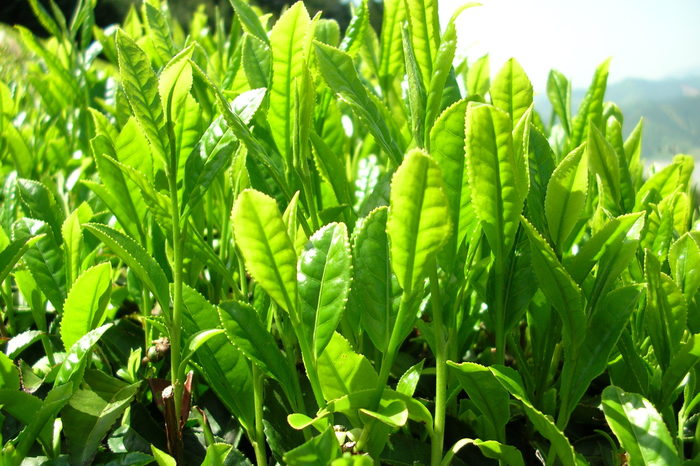Tea
Category
Beverages
Seasonal period:
All year
Tea is an infusion of leaves and sprouts of the tea plant (Camellia sinensis).
Its taste is fresh, slightly bitter and astringent.
Tea comes from Continental China, India, Sri Lanka, Taiwan, Japan, Nepal, Australia, Argentina and Kenya.
The “herbal tea” term usually refers to fruit or herb infusions that don’t include tea such as mate, chamomile and lime tea among others.
Popular types of tea:
- White tea- young leaves (new sprouts of the bush) that haven’t oxidized yet; the sprouts may have been protected from the sun to avoid the production of chlorophyll.
- Green Tea – oxidized. Very appreciated in Asia, it’s known like that because the leaves are dried and ground quickly after being picked. Tea made from these leaves has a fresher taste that that of other types of tea. That’s why green tea is not usually served with milk or sugar.
- Yellow tea. Semi-fermented or fermented tea partially comparable to blue or oolong tea. Its taste is similar to white and green tea.
- Oolong, also known as blue tea. It has a medium oxidation degree. It’s a mix between black and green teas. Their leaves are fermented for half of the time black tea is fermented.
- Black tea – big oxidation. It gives a dark red infusion; black tea is very popular in western countries. It’s a very processed tea and the one with the highest caffeine content. After the leaves are picked, fermented and dried, the size of the leaves determine the black tea grade. The common types of black tea include Ceylon, Assam, Darjeeling and Sikkim, the two last being considered to be the finest ones.
- Pu-erh, also known as red tea. Unlike other teas that are consumed after being picked, the fermentation process for this tea can last anywhere between from 2 to 60 years in oak barrels, which makes the leaves get a copper-like colour.
- Matcha tea. It’s a green ground tea used in the Japanese tea ceremony.
- Turkish tea. It’s a kind of black tea produced mainly east from the Black Sea coast. It’s common to drink it very hot and a bit of beet sugar is usually added.
Nutritional information (0.1 ud)
Energy
2.0
kcal
Carbohydrates
0.4
g
Proteins
0.0
g
Lipids
0.0
g
Sugars
0.0
g
Salt (Sodium)
0.0
mg
Folic acid
0.0
ug
Vitamin C
0.0
g
Vitamin A
0.0
ug
Zinc
0.1
mg
Iron
0.2
mg
Calcium
4.0
mg
Cholesterol
0.0
mg
Polyunsaturated fatty acids
0.0
g
Monounsaturated fatty acids
0.0
g
Saturates
0.0
g
Fiber
0.0
g
The data is merely a guide and should not be used for medical purposes. Those responsible for the web disclaims any responsibility.
-
Type of dish
- Beers
- Cocktails
- Breakfasts and brunch
- Burguers
- Juices, milkshakes and beverages
- Shellfish
- Bread and pastries
- Pizzas, patty
- Dessert
- Pasta
- Sándwich
- Pastries
- Finger foods
- Ice creams and sorbets
- Legumes
- Salads
- Eggs
- Patty
- liqueur
- Harvard plate
- Main course
- Meats
- Fish
- Birds
- Vegetables
- Soups and creams
- Rices
- Coffee, chocolate and infusion
- Cheeses
- Appetizers and canapes
- Temperature
- Cuisine type
- Additional culinary preparation
- Conservation technique
- Seasonal recipes
-
- Aromatic herbs
- Beverages
- Big game hunt
- Bread and pastries
- Canned goods and pickles
- Cereals
- Condiments, spices and additives
- Cooked, salted, preserved and cold meats
- Dried fruits and nuts
- Dry pulses
- Edible oils and vinegars
- Eggs and derivatives
- Feathered game hunt
- Fish cuts
- Fishes
- Insects
- Kitchen and bakery tecniques
- Kitchen and bakery utensils
- Meat cuts
- Meats
- Milk, cream and derivatives
- Mushrooms
- Offal
- Pasta, rice, flour and derivatives
- Poultry
- Seafood
- Service techniques
- Service utensils
- Vegetables cuts
- Vegetables, fruits, tubers and seaweed

